by Edi | Mar 28, 2023 | News
On March 16th, the second day of the Edible Cities Network conference in Barcelona, Xavier López was invited—together with Liz Castro, a green activist from Barcelona—to discuss how making cities more edible can help them become more sustainable. The discussion was part of “Avui Sortim”, a show airing on the Catalan station of the National Radio. The director of the Solidarity Foundation of the University of Barcelona pointed out that Edible City Solutions can not only relieve pressure on traditional agricultural systems, but they are also a great way to raise awareness about the importance of food and food production. According to him, one of the strengths of the Edible Cities Network is that it connects different actors— such as citizens, researchers, social entities and policy makers—interested in the topic on a global level. You can hear the full episode, in Catalan, here.
by Edi | Mar 28, 2023 | News
In March, the campaign to turn Rotterdam into a National Park began! The campaign kicked off with an exhibition at Rotterdam’s Natural History Museum, followed by a breakfast, tour and visit to the exhibition. A festival May is set to follow.
What is a National Park City?
National Parks are defined differently around the world. They are defined as “special places where we have a better relationship with nature, culture and heritage and can enjoy and develop ourselves. Combining the long-term and large-scale vision of National Parks with cities has the potential to shift our collective understanding of what and who a city is for.” National Park Cities are not National Parks, but they are inspired by them.
Over the past 10 years, communities have come together in London, UK and Adelaide, Australia to become National Park Cities – sharing curiosity, building relationships, exploring ideas and taking action together – and now Rotterdam is next! Find out more about the growing international National Park Cities movement here: https://www.nationalparkcity.org/about/
What is Rotterdam National Park?
What if the streets in Rotterdam were ten times greener? What if schools did more lessons outside? What if there was less pollution and the air we breathed every day was cleaner? What if we could pick our food on the street? What would the city look like then? How would the city smell, feel and taste? Welcome to the Rotterdam National Park: a greener, healthier and wilder city for everyone!
To achieve this ambitious goal, Groen010, the team behind the Edible Cities Network Living Lab in Rotterdam, has launched a multi-year campaign in 2023 and declared Rotterdam a National Park City. All Rotterdammers are invited to get involved! With this campaign they want to inspire and activate people to become greener, to become more sustainable and to have an eye for the nature around us. Groen010 challenges everyone to participate: citizens, companies, schools, churches, mosques, music and gyms, children, parents, grandparents… Everyone is welcome and participating is simple: from hanging a planter on your balcony, organizing from a sports activity in nature, planting flowers along a facade, to swimming in the Kralingse Plas lake.
With this campaign, Rotterdam is joining the international movement ‘National Park Cities’. This movement has existed since 2019 and aims to improve life in our cities worldwide. In a National Park City, people and nature are healthy and happy, connected to nature and to each other.
The Rotterdam National Park City Manifesto
The goal is to build a radically inclusive movement where everyone feels involved in the Rotterdam National Park campaign. The goal is a new identity for Rotterdam where everyone works together for:
- Healthier lives and more social well-being for the inhabitants of Rotterdam; more connection with nature and with each other.
- More wildlife, trees and flowers. We let nature take its course
- Natural habitats, cleaner air, water, sea and land
- Time outside with each other through culture, art, playing, walking, cycling, eating, etc
- More locally grown food and responsible consumption; less food waste and less food from far away.
- Working together, sharing, deciding and learning from each other; everyone thinks and participates.
- Connection with nature and with each other
- Using green to promote equality and justice; healthy food and green outdoor space for everyone!
Find out more at the official website: https://www.nationaalparkstadrotterdam.nl/
by Marisa | Mar 24, 2023 | News
The Edible Cities Network held its 2nd annual conference, ‘Advancing the Edible City’, from the 15th – 17th March 2023. This built on the success of 2022’s ‘Making Cities Edible’ conference, and was the first year that the annual conference was held in-person. The conference was hosted and co-organised by RMIT University, the Solidarity Foundation of the University of Barcelona, and Humboldt Universität zu Berlin.
With a combination of keynote talks, roundtable discussions, and field trips to urban food projects in Barcelona, the event provided a platform to hear from experts in the fields of urban farming, sustainable food collectives, community gardening, and food systems research. It also offered a space to create and discuss future visions for our urban food systems at various networking sessions.
40 speakers representing 25 different organisations spoke as guest speakers, and they were heard by an audience of 125 in-person attendees, with speakers and in-person attendees coming from 20 countries across 4 continents. On the first day, 100+ online attendees also logged into the live stream.
Kicking off with talks, discussions and the Edible Cities Network Awards
The first day was held in the beautiful Aula Magna of the Universitat de Barcelona, and opened with short remarks from the various conference organisers, as well as short speech from the commissioner of Food Policy in Barcelona, who remarked that ‘cities must becomes allies’ in the fight to transform our food systems.
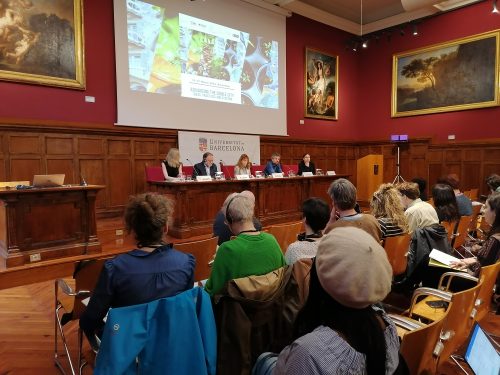
After a day of talks and discussions, there was a poster and networking session, where representatives from 8 different organisations presented posters explaining their work. Simultaneously, attendees had the option to go on an interactive walk to a nearby market, creating their own ‘edible maps’ en route where they drew maps based on the greenery they could see, and would like to see, in the area.
The day ended with the Edible Cities Network Awards Ceremony, where four winners from very diverse initiatives were awarded.
Finding out more about greening Barcelona & trips out into the field
Day two kicked off with a session focussing upon urban planning in the city of Barcelona. Attendees heard about the city’s urban nature plan, whose goals include increasing the amount of green space by 1m2 per resident, doubling the number of participants in nature-based activities, adding an extra 100 hectares to the city’s natural parks, and creating 10 biodiversity shelters. The administration also introduced the city’s urban agriculture strategy, which focusses upon three main objectives: more greenery and biodiversity; conservation and improvement of existing biodiversity; carried out with and for residents, done using approaches involving governance and education.
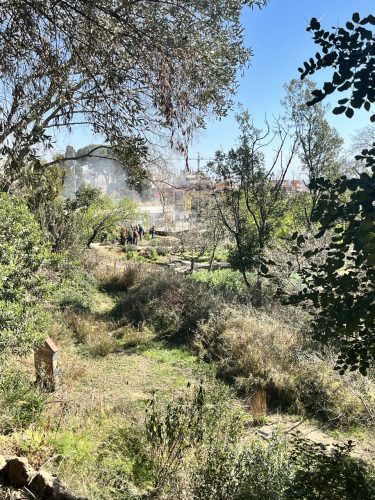
The session was followed by a tour of the recently reopened Jardines del Doctor Pla i Armengol, where gardeners from the association for the promotion of urban gardens gave a tour of the produce growing. The rest of the day was spent on field trips, from which there were three to choose:
1: Edible City Solutions, Social Challenges, and Education – organised by the University of Barcelona Solidarity Foundation. This trip included a visit to ‘ASSIS’ Foundation and Centre Cruillo, a garden where the FSUB provides a qualification in urban agriculture for vulnerable inhabitants of the city. It ended with a tour of the ‘Rec Comtal’, a canal that supplied Barcelona with water for ten centuries.
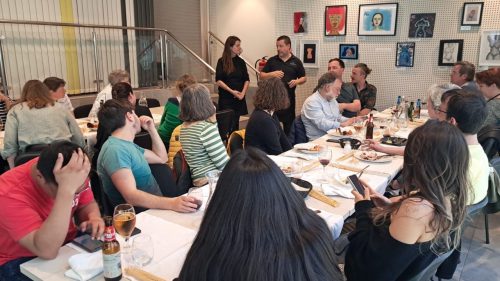
2: Promoting agroecological transition in Collserola Natural Park – Arran de Terra Co-operative. Attendees visited the vineyard L’Olivera in Collserola, a natural park on the outskirts of Barcelona that has over 30 peri-urban agriculture initiatives. The vineyard works with socially excluded citizens who live on-site, and gardens using agroecological practices.
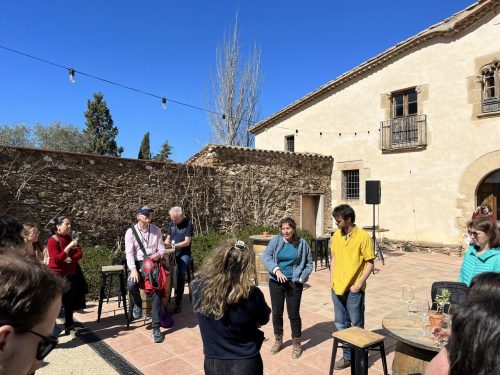
3: Permaculture & radical social change – 12p Permaculture Design. Attendees visited the Can Masdeu centre and its community gardens, and enjoyed a workshop on permaculture, gardening, and worm composting held by permaculture educator Alfred Decker. The land has been managed as a commons by the Can Masdeu initiative – a network of projects attempting to recover the valley as an agricultural and social space – since 2001.
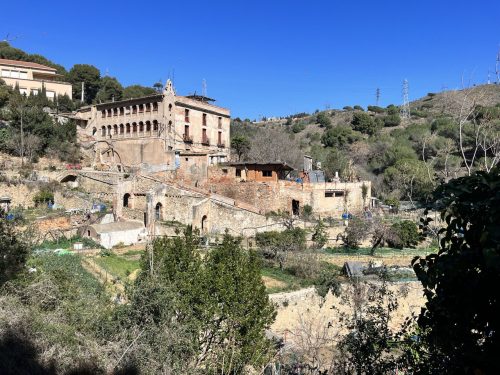
Engaging the margins and filling foodbanks
The final day opened with talks focussed on ‘engaging the margins’, and was held at the Universitat de Barcelona’s recently opened Food and Nutrition Campus. Discussions opened on the theme of ‘edible schoolyards’, looking at how actors produce edible schoolyards, and what the barriers are for implementing more greenery in schoolyards. This talk followed by an introduction to research on urban agriculture in Dhaka, and the problems that disenfranchisement create for engaging with urban agriculture. Finally, an interactive ‘bingo’ workshop on the barriers and strategies for the implementation of edible nature-based solutions rounded off the opening talks.
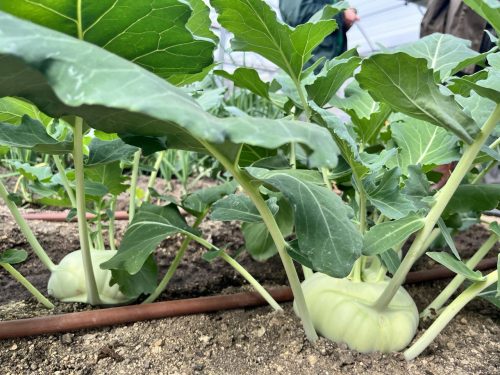
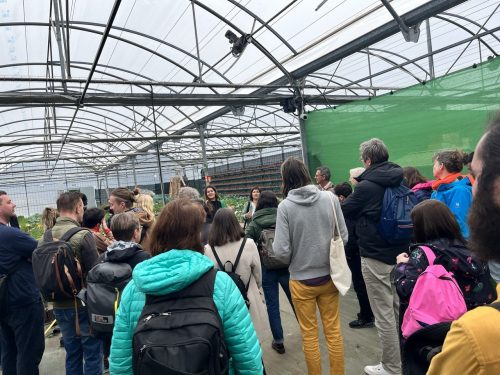
There was then a visit to the greenhouse and gardens, which are maintained by students at the university, with all produce being donated to local food banks. For the final session of the conference, attendees chose from four workshops: on the future of urban agriculture, on sustainable public procurement, on planetary health and social engagement and a session where participants were invited to play the ‘Edible City Game’, which is a simulation game offering the opportunity to build a more sustainable Sant Feliu de Llobregat.
The conference closed with a speech from Nevelina Pachova from RMIT Europe, inviting attendees to join the Edible Cities Network to stay in contact and carry on the conversations initiated over the 3 days. The day ended with a goodbye lunch held outside, with a final opportunity for networking between participants.
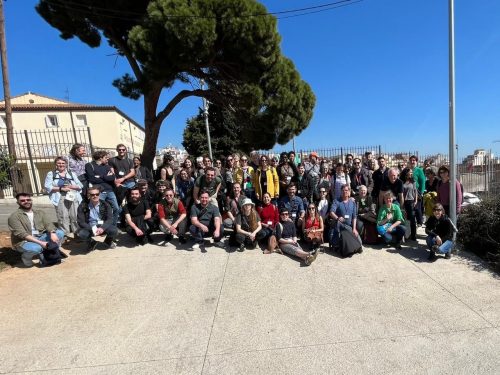
by Edi | Mar 23, 2023 | News
The course organized by the COST Action Circular City (CA17133), with the collaboration of water specialists ICRA, was designed to support training in the field of Nature-Based Solutions (NBS) and Circular Cities for a wide range of public and private stakeholders. The course had a special practical focus to provide local stakeholders with essential practical knowledge to realize green and circular cities.
In that sense, many examples were related to the upcoming greening and re-naturalisation interventions that are planned to take place in Girona in the near future. 30 attendees from the local administration, academia, private and civil society sectors were trained to achieve greener, circular and thus more liveable cities. The Edible Cities Network project supported the local organization.
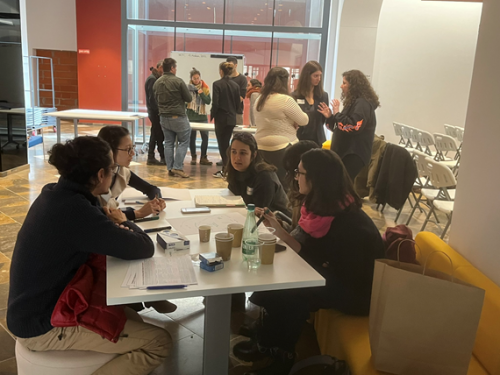
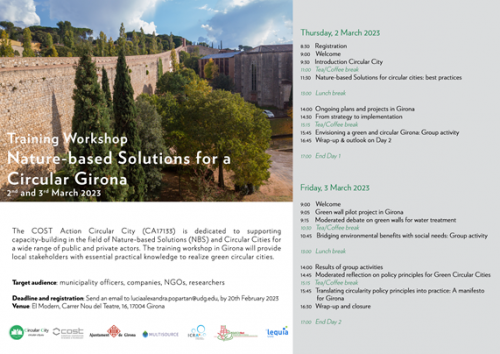
by Edi | Feb 7, 2023 | News
Members of Groen010 got together to work on their communication strategy, and met with a representative of London National Park City to discuss Groen010’s campaign to turn Rotterdam into a National Park City too. In December, the team also held another edition of their monthly “Green Cafe” events, where Rotterdamers are invited to join members of Groen010 to visit different green initiatives in the city and have a coffee.
Furthermore, last month Groen010 and Rotterdam’s greenbroker, Els van Dam, organised a meeting with members of the different working groups in the City Team Groen010 and members of the municipality. Together, on February 21st, they will organise the first of a series of Green Tables to get to know each other better, work together at the municipality’s green agenda and Groen010’s manifesto, and find out common goals and opportunities to cooperate.
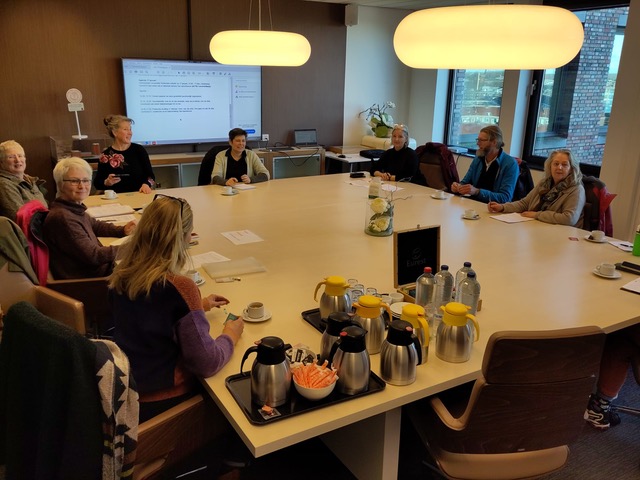
Members of Groen010 and the Rotterdam municipality working together
by Edi | Jan 26, 2023 | News
After many difficulties, we were able to put our water house back, located at the, Bernburger Straße 22 in Berlin, into operation in December 2022, although we are still waiting for important electronic components – EdiCitNet project partner Nolde & Partner informed.
Another complicating factor was that we could not find a sanitation company that was willing or able to build the system to our specifications. So we had to take matters into our own hands and, of course, learned a lot in the process.
The plant now processes 10,000 litres of grey water daily into high-quality service water. As soon as it gets warmer and the neighbouring greenhouse can be planted again, we will also supply the greenhouse with service water again.
Before that, we will put the online monitoring into operation and try to increase the throughput again step by step. In the future, we want to use surplus service water that is not needed for flushing the toilets of the approximately 250 residents and for the greenhouse more for watering green areas, because the adjacent reed area, which contributes greatly to improving the living environment and the microclimate in summer through its high evaporation capacity, has suffered greatly from a lack of water in recent dry years.
On Saturday, 21.01.23, we had the first group of visitors with almost 40 participants from the Höhere Landbauschule Rotthalmünster in the water house, who were divided into two groups and informed about water and nutrient recycling as well as urban farming.
The Staatliche Höhere Landbauschule Rotthalmünster offers graduates of agricultural schools a commercially oriented advanced agricultural training. After successfully completing the school year, they are awarded the professional title “State-certified agricultural business economist”.
Farmers, who are particularly affected by climate change, drought and high fertiliser prices, are very open- minded when it comes to decentralised water and nutrient recycling and other forms of food production. This resulted in very interesting discussions for both sides that lasted over 2 hours.













